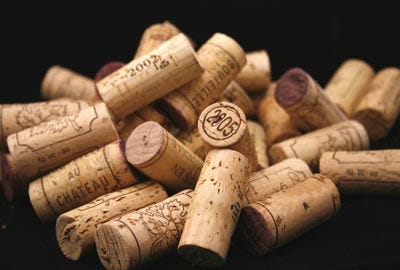Amcor Rigid Plastics seeks to put a cork in its PET wine bottles. The producer of plastic packaging is developing PET bottles with both synthetic and natural corks."Both types of corks are commonly used in the wine industry," Yi Jiang, market development manager for Amcor, told PlasticsToday. "The corks maintain the traditional wine experience and can ensure smooth conversion to PET on the customer's filling line with minimal changes."
February 15, 2012
Amcor Rigid Plastics seeks to put a cork in its PET wine bottles. The producer of plastic packaging is developing PET bottles with both synthetic and natural corks.
"Both types of corks are commonly used in the wine industry," Yi Jiang, market development manager for Amcor, told PlasticsToday. "The corks maintain the traditional wine experience and can ensure smooth conversion to PET on the customer's filling line with minimal changes."

Thus far, PET wine bottles have primarily been sealed with screw caps.
Research firm Tragon Corp. recently conducted a study regarding wine closures.
"When asked how likely they would be to purchase wine according to closure type, 94% indicated they would be more likely to purchase wine with a natural cork, 72% said they would purchase wines with a synthetic closure, and 45% indicated a willingness to buy wines with screw-caps," stated Tragon.
Amcor already has commercial sales of wine bottles blowmolded of polyethylene terephthalate. The wine bottles' gas barrier is applied using the Plasmax plasma coating, a glass-like material that seals the container from the inside to protect the contents from oxidation.
Jiang said Amcor's PET bottles with the Plasmax coating offers a one-to-two year shelf life for wine, depending on the size of the bottle.
Plasmax is an FDA-compliant enhanced passive barrier for oxygen-sensitive products. This ultra thin (less than 100nm) material is transparent and resists cracking, abrasion, and delamination, according to Amcor. The company stated the barrier doesn't degrade over time nor limit the storage time for empty bottles. The barrier coating is easily removed during the recycling process and does not contaminate the recycling system, the company stated.
Several wine producers switched to the alternative PET wine packaging due to its convenience and sustainability benefits, according to Amcor. The bottles preserve the look of the original glass container and can run on a winery's existing glass filling line. The PET containers are one-sixth the weight of glass bottles, which makes it easier to transport.
Amcor's PET wine bottle with corks is still in the development stage. Jiang said the launch date is to be determined based on development progress and market demand.
About the Author(s)
You May Also Like


